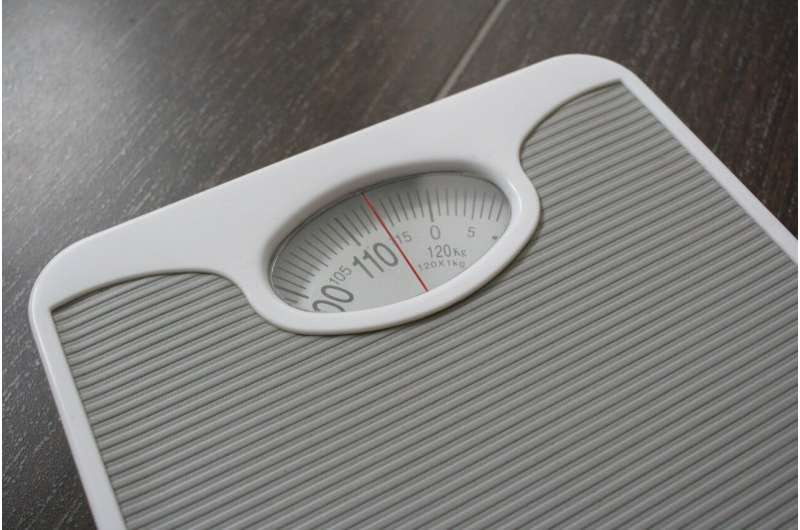by Elana Gotkine

Credit: Pixabay/CC0 Public Domain
In individuals with schizophrenia, accelerated continuous theta burst stimulation (cTBS) seems promising for treating obesity, according to a study published online Oct. 31 in Schizophrenia Bulletin.
Dongyu Kang, M.D., from The Second Xiangya Hospital of Central South University in Changsha, China, and colleagues conducted a double-blind, randomized trial to examine the efficacy of noninvasive magnetic stimulation techniques in reducing obesity among individuals with schizophrenia. Forty overweight individuals with schizophrenia were recruited and randomly assigned to active intervention, which included 50 accelerated cTBS sessions over the left primary motor area, or sham intervention.
The researchers found that the active group had a significant decrease in body weight and body mass index after the intervention; this improvement persisted at the one-month follow-up. In the active group, the score on the Barratt Impulsivity Scale decreased and mediated the effect of accelerated cTBS on body weight.
After the active intervention, the late positive potential component, which is related to motivated attention and emotional processing, decreased in frontal brain regions and increased in posterior regions in the food picture cue electroencephalograph task.
“The intervention was found to be associated with decreased impulsivity and increased motivated attention allocation to food-related cues,” the authors write. “These findings are particularly noteworthy, considering the severe metabolic side effects associated with many second-generation antipsychotics.”
More information: Dongyu Kang et al, The Effect of Accelerated Continuous Theta Burst Stimulation on Weight Loss in Overweight Individuals With Schizophrenia: A Double-Blind, Randomized, Sham-Controlled Clinical Trial, Schizophrenia Bulletin (2023). DOI: 10.1093/schbul/sbad144
Copyright © 2023 HealthDay. All rights reserved.

Leave a Reply